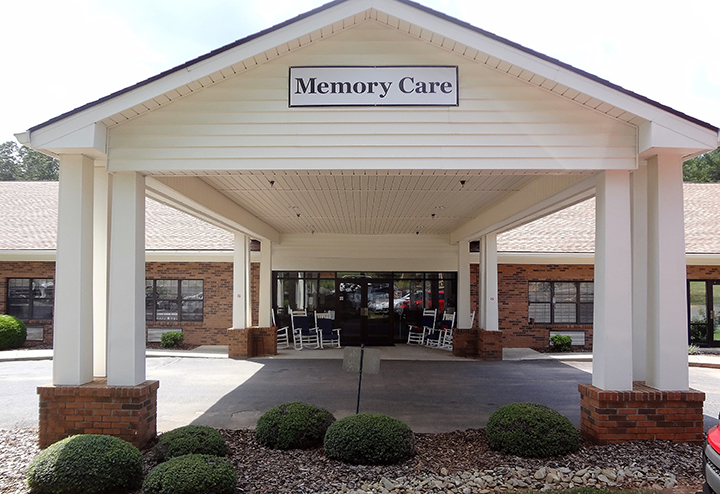Professional Tips for Providing High quality Alzheimer's Treatment in your home
Taking care of a private with Alzheimer's illness in your home presents special difficulties that need both understanding and tactical planning. Developing an organized everyday regimen, improving communication skills, and producing a risk-free environment are vital elements of efficient caregiving. Furthermore, caregivers must not ignore the importance of seeking outside support and sources to keep their own health. As we discover these specialist pointers additionally, it ends up being clear that a thoughtful technique can considerably influence the high quality of life for both the caretaker and the individual receiving treatment. What details methods can be implemented to ensure an encouraging atmosphere?
Understand Alzheimer's Illness
Alzheimer's condition, a modern neurodegenerative disorder, greatly impacts cognitive function and day-to-day living tasks. It primarily influences memory, believing, and actions, resulting in a gradual decline in the capabilities required for independent living. Early signs usually consist of forgetfulness, trouble in problem-solving, and difficulties in completing familiar tasks. As the disease advances, people might experience disorientation to time and area, impaired judgment, and adjustments in mood and individuality.
The etiology of Alzheimer's is intricate, entailing the buildup of amyloid plaques and tau tangles in the brain, which interfere with neuronal communication and result in cell death. Threat aspects consist of age, genetics, and way of living options, with the bulk of cases occurring in individuals over 65. Awareness of these elements is vital for caregivers, as recognizing the condition can promote far better assistance and care methods.
Furthermore, Alzheimer's illness not only influences the specific but additionally has substantial emotional and logistical effects for families. Recognizing the phases of the disease enables caretakers to anticipate challenges and adapt their approach, making certain that the demands of those influenced are met compassion and understanding. This foundational knowledge is essential for advertising high quality care in the house.
Establish a Regular
Producing a structured everyday regimen can considerably boost the lifestyle for individuals living with Alzheimer's disease. Establishing consistent patterns aids to minimize confusion and anxiety, offering a feeling of safety and security and familiarity. A daily schedule needs to consist of normal times for meals, activities, and remainder, which can aid individuals expect what to anticipate throughout the day.
Integrating simple, familiar jobs into the routine can promote a feeling of achievement and self-reliance. Tasks like horticulture, cooking, or perhaps basic household chores can be helpful. It is important to customize these tasks to the individual's abilities and rate of interests, making certain interaction without aggravation.
Additionally, versatility within the routine is crucial. While consistency is very important, allowing for adjustments based upon the individual's state of mind or power levels can aid keep a favorable environment. Motivate participation in social communications, whether via family members visits or neighborhood activities, as these can offer stimulation and connection.
Enhance Interaction Skills
Efficient interaction is important for maintaining purposeful links with people dealing with Alzheimer's illness. As cognitive abilities decrease, typical conversation might come to be difficult. Caretakers should adapt their communication techniques to promote understanding and link. Alzheimers Care Charlotte.

Program authentic rate of interest by preserving eye call and responding to acknowledge their feelings or thoughts. Instead, validate their emotions and reroute the conversation carefully if required.
Using aesthetic help, such as photos or written tips, can additionally improve comprehension. Motivate participation in activities that stimulate conversation, such as recollecting about previous events or checking out picture cds.
Create a Safe Atmosphere
A supportive atmosphere plays a substantial function in the health of individuals with Alzheimer's disease. Producing a risk-free home setting is important to decrease risks and improve the lifestyle for both the individual and their caregivers. Begin by examining the space for possible threats. Remove stumbling risks such as loose carpets, electrical cables, and clutter. Make certain that paths are clear and well-lit to stop drops.
Install safety locks on home windows and doors to prevent wandering, which is a typical issue in Alzheimer's clients. Additionally, think about making use of non-slip mats in restrooms and install grab bars for included assistance. Identifying spaces read and vital items can aid individuals navigate their environments more conveniently.
Emergency situation calls ought to be plainly posted near phones, and a medical alert system can give assurance. Take into consideration using childproofing measures for hazardous substances and sharp things. Frequently check smoke detectors this page and carbon monoxide gas alarm systems to ensure they are functioning. In general, customizing the home atmosphere to the unique requirements of the individual with Alzheimer's not only promotes safety and security however also motivates freedom and convenience.
Seek Assistance and Resources
Accessing assistance and sources is crucial for caretakers and people facing the obstacles of Alzheimer's disease. Caregiving can be overwhelming, both literally and mentally, and it is important for caretakers to look for support to keep their health and give quality treatment.

In addition, checking out break treatment options can manage caregivers much-needed breaks, enabling them to minimize and recharge exhaustion. This might consist of adult day programs or in-home treatment services. Monetary assistance programs may also be available to help counter the costs of treatment.

Verdict
In summary, supplying top quality Alzheimer's care in your home demands a multifaceted technique. Comprehending the intricacies of the illness, establishing an organized routine, boosting communication skills, developing a risk-free environment, and looking for support from offered sources collectively add to enhanced caregiving experiences. Executing these strategies not browse around this site only cultivates a sense of freedom and achievement for individuals with Alzheimer's but likewise eases caregiver stress, inevitably boosting the quality of life for both caregivers and those they support.
Caring for an individual with Alzheimer's illness at home presents special obstacles that call for both understanding and critical preparation.Moreover, Alzheimer's condition not just impacts the private however additionally has significant emotional and logistical ramifications for family members.Creating a structured everyday regimen can dramatically improve the top quality of life for people living with Alzheimer's condition.Effective interaction is essential for keeping meaningful connections with individuals living with Alzheimer's disease. Alzheimers Care Charlotte. Carrying out these strategies not only fosters a sense of freedom and achievement for individuals with Alzheimer's yet additionally reduces caretaker stress and anxiety, ultimately enhancing the high quality of life for both caretakers and those they support